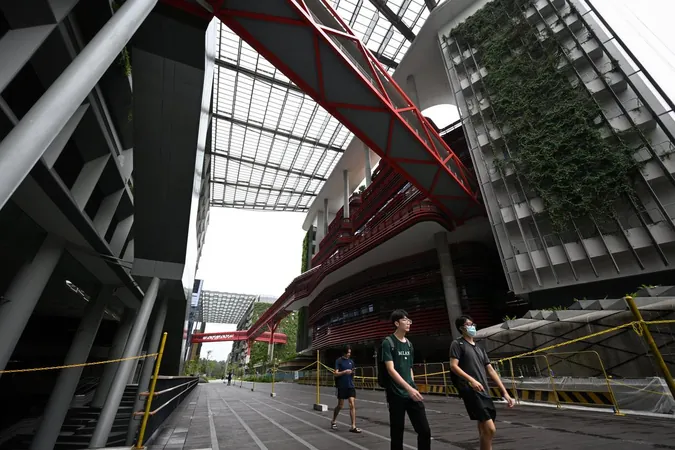
Revolutionizing Engineering Education: Singapore Institute of Technology's Bold New Approach
2025-01-06
Author: Wei
Introduction
Starting from September 2025, full-time students at the Singapore Institute of Technology (SIT) will have the chance to redefine their educational journey through two innovative engineering degree programs that prioritize hands-on skills over traditional learning methods.
Competency-Based Education (CBE) Model
SIT is introducing a competency-based education (CBE) model, allowing students to engage with the core skills essential for real-world engineering roles via structured 'learning blocks.' Each learning block lasts four months and is designed around practical industry challenges.
Electrical and Electronic Engineering Program
In the four-year Electrical and Electronic Engineering honors program, learning blocks will cover critical topics such as semiconductor manufacturing, where students will dive deep into areas like semiconductor reliability assessment and advanced fabrication technologies.
A Departure from Traditional Education
This methodology marks a stark departure from conventional degree frameworks, which often see students inundated with content in their first year, only to gradually tackle complex topics in subsequent years before a culminating project.
Infrastructure and Systems Engineering Program
The second program under this innovative framework is the Infrastructure and Systems Engineering degree. Students will engage in approximately six learning blocks throughout their four years of study, ensuring a comprehensive and practical education that aligns closely with industry needs.
Commitment to Relevance
Previously, SIT adapted the CBE model for adult learners, but its expansion to full-time undergraduate programs reflects the university's commitment to staying relevant and effective in a rapidly changing job market.
SIT President's Vision
In a recent interview, SIT president Chua Kee Chaing expressed excitement over the new programs, aiming to enroll around 100 students initially and gradually expand the CBE model to all SIT degrees.
Importance of the New Approach
Chua emphasizes the importance of this new approach, highlighting that traditional education often leads to knowledge retention challenges. “Instead of waiting three or four years before a learner has gathered enough knowledge to do something, I now put everything into a learning block,” he stated.
Enhanced Student Interaction
Professors will now spend less time delivering traditional lectures, allowing them to focus on student interaction and mentorship. This approach enriches learning and involves continuous assessment through hands-on projects and bite-sized quizzes.
Interdisciplinary Degree Launch
In conjunction with engineering programs, SIT is also launching a four-year interdisciplinary degree that merges business acumen with information and communications technology (ICT). The inaugural areas of study will focus on hospitality and tourism management, as well as artificial intelligence (AI).
Creating Tech-Savvy Professionals
Professor Chua articulates that the interdisciplinary program aims to create tech-savvy professionals in hospitality who can integrate AI into practical scenarios while recognizing the significance of understanding multiple fields.
Conclusion
With these innovative programs, SIT is setting the stage for a transformative educational experience in Singapore, aiming to equip students with the necessary skills to thrive in an increasingly digital and interconnected world.
 Brasil (PT)
Brasil (PT)
 Canada (EN)
Canada (EN)
 Chile (ES)
Chile (ES)
 Česko (CS)
Česko (CS)
 대한민국 (KO)
대한민국 (KO)
 España (ES)
España (ES)
 France (FR)
France (FR)
 Hong Kong (EN)
Hong Kong (EN)
 Italia (IT)
Italia (IT)
 日本 (JA)
日本 (JA)
 Magyarország (HU)
Magyarország (HU)
 Norge (NO)
Norge (NO)
 Polska (PL)
Polska (PL)
 Schweiz (DE)
Schweiz (DE)
 Singapore (EN)
Singapore (EN)
 Sverige (SV)
Sverige (SV)
 Suomi (FI)
Suomi (FI)
 Türkiye (TR)
Türkiye (TR)
 الإمارات العربية المتحدة (AR)
الإمارات العربية المتحدة (AR)